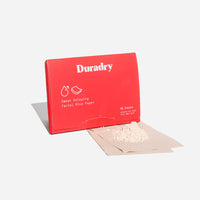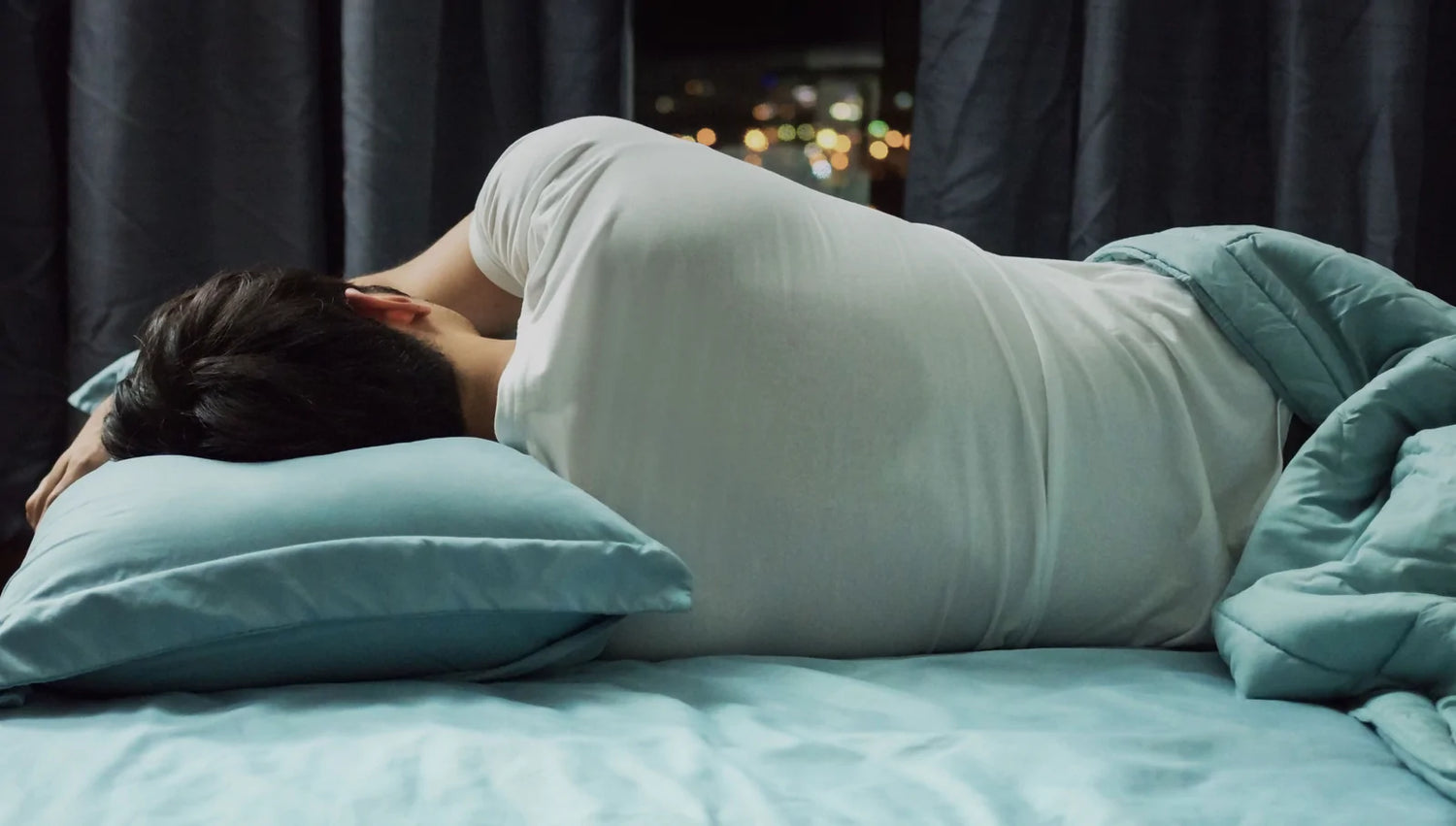Have you been sweating a lot at night, and it's causing you distress? Worried about the health implications of excessive sweating at night? If so, this blog is for you! In this article, we'll be discussing the various causes of night sweats, what you can do to relieve them, and when to seek medical help. So whether you're sweating out of anxiety or some other unknown cause, read on to learn everything you need to know!
What Are Night Sweats?
If you're sweating in your sleep, it's not your imagination. Night sweats are a natural response to various life stresses, and they can be quite bothersome. They usually happen when the body releases too much fluid during the night, most often due to intense sweating. However, night sweats can also be caused by physical and emotional stressors, such as anxiety or depression. Sometimes they're triggered by certain medications or illnesses, but there are many other reasons night sweats happen. Knowing the reason behind your sweat episode can help you to solve the problem. For example, if you sweat a lot at night due to anxiety, you might try changing your sleep habits to see if that resolves the issue. Alternatively, you might want to see a doctor for a diagnosis and possible treatment. In the end, understanding your night sweat is the first step to resolving it.
Is it Normal to Sweat a Lot in Your Sleep?
So you're sleeping soundly and then all of a sudden you start sweating like crazy. What's going on? Millions of people sweat in their sleep, and it doesn't always mean you have a fever. Some common causes of sweating in your sleep include anxiety, stress, or insomnia. If you're finding that you sweat a lot during the night, it might be worth checking out the different things you can do to try and fix the issue. From changing your bedding to using medication, there are many things you can do to address the cause of your sweatiness in your sleep. If you're finding that sleeping becomes increasingly difficult because of the sweat, speak with a doctor about the cause and possible solutions. It can be normal to sweat one night because a nightmare or a sickness but isn´t normal to sweat at night as a regular basis.

Should I Worry if I Sweat a Lot in My Sleep?
Everybody sweats, but for some people, sweating in their sleep becomes a common problem. If you're one of these people, don't worry - it's not a sign of weakness. In fact, night sweats are a natural response to anxiety or stress. If the sweat is excessive and causes discomfort, it might be worth seeking medical attention. However, if the sweat is mild and occurs only occasionally, it's probably not a cause for concern. If you find that you're excessively sweating at night, it might be helpful to consult a health professional. They can help you identify the cause of your sweat and provide treatment if necessary.
What causes night sweats? Potential reasons
There are a number of reasons why someone might sweat during the night, but the most common are hormonal changes and stress. If you're experiencing night sweats, it's important to identify the cause and address it. This may involve adjusting your sleep schedule or changing some habits, like reducing caffeine intake or eating a healthy diet. If night sweats are mild and sporadic, you may not need to consult a doctor, but if they're severe or continue for more than two weeks, it's advisable to see a specialist. Symptoms of night sweats will also vary from person to person, so it's important to consult a doctor if you're not sure what's causing them.
1.Anxiety or Stress
Sweating happens as a result of nervousness and when stress hormone levels rise, causing excessive moisture to be lost through sweat. Most people experience occasional night sweats - some even suffer from them on a regular basis. However, if you're experiencing frequent sweating accompanied by feelings of unease or dread then it's best to get it checked out by a doctor.
2. Your bedding
Your bedding plays a very important role in your overall sleep hygiene. By making sure that you are sleeping on a comfortable surface, eliminating heavy blankets or sheets and controlling any allergies before bedtime, you will be able to get the most out of your night's sleep.
3. Sleep Environment
Sleep environment is one of the most important factors that can affect your sweat production. Make sure to get a good night's sleep by sleeping in an environment that is cool and free from any noise pollution. Additionally, be sure to choose the right pillow for you - flat, soft or fluffy. Finally, keep your room temperature cool during the night and avoid using heavy blankets or mattress pads.
4. Hormonal changes
There are a number of hormonal changes that can cause night sweats. These can occur during puberty, pregnancy and menopause, among other times in a woman's life. If you have any of the above conditions, your night sweats will be worse.
5. Hyperhidrosis
Hyperhidrosis is a disorder of excessive sweating. It can be caused by various underlying problems, and some treatments include medication and surgery. If you are experiencing excessive sweating at night for more than 2 weeks in a row, it is important to consult your doctor for an assessment.

6.Metabolic Syndrome
If you have metabolic syndrome (a cluster of risk factors that include obesity, high blood pressure and cholesterol), your body is increasingly prone to developing sleep problems such as night sweats. This is because people with metabolic syndrome are more likely to have excessive weight gain around the abdomen due to a higher storage of body fat in the abdominal area.
7. Medical conditions
There are many medical conditions that can cause night sweats. Some of the most common ones include: thyroid problems, kidney disease, sleep apnea and anxiety disorders.
8. Medications
Many medications can cause night sweats, including birth control pills and antibiotics. Some of the most common causes are antidepressants, sedatives and anxiety medication. If you are taking any medications, it is important to speak to your doctor about the possibility of night sweats.
9. Alcohol and diet
Some people find it difficult to sleep due to night sweats caused by drinking alcohol. This is because alcohol dehydrates you and causes your body to sweat more in the night. Overindulging in processed foods and sugary drinks can also cause night sweats, as these items are high in sugar and calories that contributes to weight gain.
More Serious Causes of Sweating While Sleeping
More serious causes of excessive sweating can require treatment with medication or surgery. If you're experiencing this problem, it's important to get checked out by a doctor as soon as possible. By doing this, you'll get started on the right path to resolving the issue and sleeping better through the night.
1.Infections
If you're experiencing night sweats, it's important to find the cause. Many sweat-related infections can cause this uncomfortable condition in people of all ages, including sinus infections, ear infections, and pneumonia. It is also important to take the appropriate antibiotics if your sweat has anything that suggests an infection - for example fever or body aches. Make sure to follow the doctor's instructions carefully so as not to suffer any side effects from the prescribed medication.
2.Autoimmune Disorders
Autoimmune disorders are diseases that cause the body's immune system to attack its own healthy cells. This can lead to a wide range of symptoms, from sweatiness during the night even when you don't have a fever, to serious conditions like rheumatoid arthritis and lupus.
3.Some Cancers
When it comes to cancer, there is no specific cause that can be identified with certainty. However, most cancers are the result of several factors working together in a harmful way. As such, it's important to get checked for any other medical conditions that could contribute and cause excessive sweating during sleep. In some cases, cancer might require treatment including surgery if the sweat glands are heavily damaged or destroyed as a result of the disease. Therefore, it is always important to visit your doctor regularly and inquire about anything related to sweating (including night sweats).
4.Sleep Apnea
Sleep apnea is a disorder that causes people to stop breathing during sleep. If left untreated, it can lead to many other health problems. Some of the most common are obesity, allergies, and asthma. There are various treatments available and it is important to seek help if you are suffering from sleep apnea.
How to stop night sweats?
Sweating at night is a common problem, and it can be frustrating because there is no clear solution. However, by addressing the causes of excessive sweating in bed, you can find relief. Here are some of the possible solutions for night sweats.
Get a good night's sleep
Getting a good night's sleep is essential for overall health and well-being. There are a few things you can do to help get the most out of your slumber, including relaxation techniques, exercise etcetera. However, the most important aspect of getting quality sleep is making sure that your room temperature and darkness levels are comfortable as well as hydrated.
Follow a healthy diet and exercise routine
It is important to have a healthy diet and regular exercise if you want to stop excessive sweating. This can be caused by a number of factors, including lifestyle and dietary habits. To remedy the situation, it's essential to identify the root cause of sweatiness and take corrective action. For example, if your sweat glands are overactive due to an unhealthy diet or lack of fiber in your food, then you will need to modify those elements of your lifestyle. Likewise, if stress is causing hyperhidrosis (excessive sweating), then reducing stressed levels through relaxation techniques like yoga or meditation can help fix the issue permanently. Regular exercise doesn't just keep you looking good - it also has many health benefits such as reducing stress levels and improving circulation

Take Time to Relax Before Bed
To get a good night's sleep, it is important to take time to relax. This can be tricky if you are constantly sweating due to some of the conditions out of your control. To help prevent excessive sweating, try taking some time before bed to relax your body and mind. You can do this by using a cooling sheet or eye mask. Both of these will help you drift off quickly and peacefully into dreamland!
Skip Spicy Foods
If you're looking to bed in sweat-free, it's important to avoid consuming spicy foods before bedtime. This is because spicy foods can increase your body temperature and trigger excessive sweating at night. While this might not sound too bad, it can actually make sleeping a lot harder - especially if you suffer from sleep apnea or other breathing disorders.
Get Professional Help
If you're struggling to control your sweat, don't panic. Therefore, it is important to speak with your doctor about the situation so they can properly diagnose and treat the root cause of excessive sweating. Hopefully, by doing so you will be able to get control over this pesky problem once and for all!
When to See a Healthcare Provider
Sweating in your sleep is common, but it doesn't have to be a cause for concern. Some of the more common causes of this condition include anxiety, stress, and a thyroid disorder.
If you're experiencing excessive sweating, it's important to seek out medical help. Treatment options may vary based on the cause, but a healthcare provider can provide guidance in finding relief. So don't sweat it - go see a healthcare provider and get on track to a better night's sleep!









